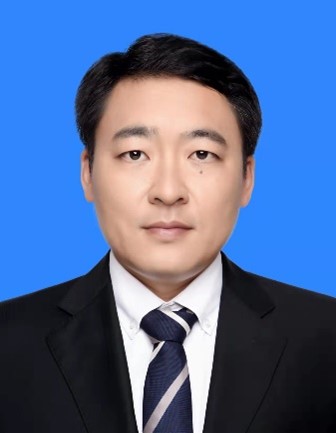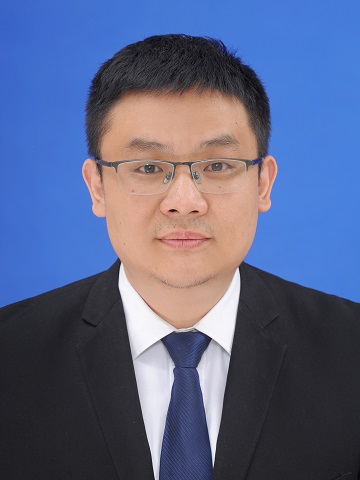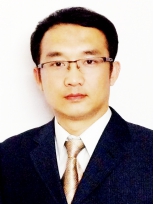
| Prof. Wenhao LiChangchun Institute of Optics, Fine Mechanics and Physics, Chinese Academy of Sciences, China Li Wenhao is a Researcher and Doctoral Supervisor. He has been awarded the Class A Young Scientists Fund of the National Natural Science Foundation of China (formerly known as the National Science Fund for Distinguished Young Scholars) and serves as the Chief Scientist and a member of the overall expert group for National Key Research and Development Program projects. His research has led to a series of pioneering achievements in the theory and technology of large‑area, high‑precision grating manufacturing, as well as in high‑precision grating displacement measurement technology. As first or corresponding author, he has published more than 100 papers in journals such as Light: Science & Applications and Laser & Photonics Reviews, and holds over 100 authorized invention patents, including five U.S. patents. He has led more than 20 projects, encompassing the Young Scientists Fund (Class A) and Key Program of the National Natural Science Foundation of China, along with National Key Research and Development Program initiatives. Among his numerous honors are the First Prize of Technological Invention from the China Instrument and Control Society in 2024 (ranking first among six recipients), the First Prize of the Jilin Province Science and Technology Progress Award in 2022 (ranking first among fifteen recipients), the China Industry-University-Research Collaboration Innovation Award in 2021, the President’s Award of the Chinese Academy of Sciences, recognition as an Outstanding Member of the Youth Innovation Promotion Association of the Chinese Academy of Sciences, and the distinction of Jilin Province Top‑Notch Innovative Talent. Speech Title: Development and Application of Large Area Nanometer Precision Diffraction Grating Abstract: Large area high-precision diffraction grating is widely used in spectral analysis, laser, displacement measurement, optical communication and other fields. It is an indispensable core component of inertial confinement nuclear fusion device, large astronomical observation equipment, synchrotron radiation light source and other important national scientific projects. Based on the development trend of large-area high-precision gratings, the report analyzes the effect of grating diffraction efficiency and wave front on groove parameters, and introduces the key technologies that the team has conquered in the production of meter-scale nano-precision gratings. The 420mm×1500mm monomer non-jointing holographic grating have been developed. The gratings developed by the team have been applied in the national strategic high-tech fields such as large optical system and high-end lithography machine industry, which provides the core device support for China's high-tech strategic deployment. |
| Prof. Peng ZhangChangchun University of Science and Technology, China Zhang Peng, male, is a professor and doctoral supervisor at Changchun University of Science and Technology. His main research areas include high-speed space laser communication and networking technology. He has presided over projects such as the National Natural Science Foundation and the Innovation Special Zone. He has selected as a national-level young talent, a top-notch innovative talent in Jilin Province, a high-level talent in Jilin Province, etc. He has selected as Editorial Board Member of "Optical Communication Technology", Young Editorial Board Member of "Acta Optica Sinica", "Acta Photonica Sinica" and "Infrared and Laser Engineering", Member of the Space Mechatronics and Space Optics Committee of the Chinese Society of Space Science, Member of the Optical Communication and Optical Network Committee of the Chinese Society of Optical Engineering. Speech Title: Near-ground High-Speed Atmospheric Laser Communication Technology and Experimental Research Abstract: Wireless laser communication, with its advantages of large communication capacity, high transmission rate, strong anti-interference ability, light weight, small size and low power consumption, well meets the urgent requirements of high-speed information transmission between space information nodes, and it has broad application prospects and important application value in the integrated information network of land, sea, air and space. Turbulent channels will cause beam diffusion, light intensity flicker, beam drift, etc., thereby resulting in phase distortion, intensity jitter and deterioration of signal-to-noise ratio of the detection signal of the optical terminal equipment. Turbulent channels will seriously affect the communication quality and even lead to communication interruption. To address the above-mentioned challenges, technical breakthroughs were made from the perspectives of non-diffracted beam control, mode amplification and diversity, multi-format and multi-aperture, and adaptive receiving gain. The relevant technical hardware design and development were completed, and a series of indoor and outdoor laser communication experiments were conducted to verify the technical feasibility. The related research results will provide certain references for the future development of space laser communication.
|
| Prof. Guangfeng ShiChangchun University of Science and Technology, China Shi Guangfeng is a Professor and Doctoral Supervisor recognized through multiple talent initiatives, including the Jiangsu Province Dual‑Creation Plan, and has been honored as a Provincial‑Level Leading Talent, an Expert with Outstanding Contributions, a Top‑Notch Innovative Talent, and a “Spring Seedling” Research Talent in Jilin Province. He has served as Principal Investigator for more than 20 research projects, supported by programs such as the National Natural Science Foundation of China (Youth and General Programs) and the Jilin Provincial Department of Science and Technology (Youth, Natural Science Foundation, Key R&D, and International Cooperation Programs). His research output includes over 70 authorized intellectual property rights, among which 34 are invention patents with him as the primary inventor, and more than 160 academic papers, including over 60 indexed by SCI/EI. His work has been distinguished with numerous awards, notably the Gold Medal and the Invention Entrepreneurship Award (Second Prize) at the International Invention Exhibition of the China Invention Association; two Second Prizes of the Jilin Province Science and Technology Progress Award; the First Prize for Outstanding Scientific and Technological Achievement Transformation in Jilin Higher Education Institutions; the Silver Award of the “Golden Flint Award” from the Chinese Society for Optical Engineering; the “Best Researcher Award” in Optical Physics presented by Science Father; the Second Prize for Natural Science Academic Achievements in Jilin Province; the Second Prize in the National Competition of Self‑Developed Experimental Teaching Instruments and Equipment; and the Third Prize of the Science and Technology Progress Award from the China Instrument and Control Society. Speech Title:Detection Technology and Applications Based on Optical Fringe Projection and Diffraction Fringes Abstract: Optical fringe projection and diffraction fringe detection technology, as a core method in modern precision measurement, provides breakthrough solutions for high-end manufacturing and scientific research through non-contact, high-efficiency 3D data acquisition. This report first introduces the principles and methods of fringe projection technology, diffraction fringe technology, and related intelligent algorithm integration, followed by specific research applications such as mirror surface shape detection, precision tool setting inspection, micro-hole detection, and automotive flywheel disc inspection. The "high-efficiency, high-precision, and adaptive" characteristics of these methods will be applied to more fields. |
| Assoc. Researcher Lingsheng KongChangchun Institute of Optics, Fine Mechanics and Physics, Chinese Academy of Sciences, China Dr. Lingsheng Kong, Associate Research professor, has long been engaged in research on three-dimensional imaging, virtual reality, and augmented reality. He has published over ten papers in journals such as Optics Express, Applied Optics, and Chinese Optics Letters, and has presided over or participated in more than ten scientific research projects. His major academic roles include serving as a review expert for the National Natural Science Foundation of China, a member of the Jilin Provincial Optical Society, a committee member of Virtual Reality & Intelligent Hardware, a member of the VR/AR Technology and Industry Branch of the Chinese Institute of Electronics, a committee member of the CSIG Virtual Reality Special Committee, a committee member of the CSIG 3D Imaging and Display Special Committee, an expert of the Virtual Reality Industry Alliance (IVRA), a member of the Youth Innovation Promotion Association of the Changchun Institute of Optics, Fine Mechanics and Physics (CIOMP) under the Chinese Academy of Sciences, a member of the Technology Transfer Advisory Committee of CIOMP, and a reviewer for internationally renowned journals such as Optics Express, Optics Letters, and Applied Optics. Speech Title:High-precision AR navigation technology Abstract: Aiming at the technical pain points and domestic industry gaps in high-precision positioning for AR surgical navigation, the team from the Changchun Institute of Optics, Fine Mechanics and Physics (CIOMP) has applied aerospace-grade high-precision opto-mechanical positioning technology to achieve <0.5 mm positioning accuracy in surgical navigation scenarios. The team has already completed the development of China’s first army-use AR high-precision positioning helmet, the technology of which can be transferred to medical applications. This advancement addresses issues such as hand-eye incoordination during surgery and can be applied in areas including medical training, dental implant assistance, orthopedics, and abdominal puncture surgical navigation. |



